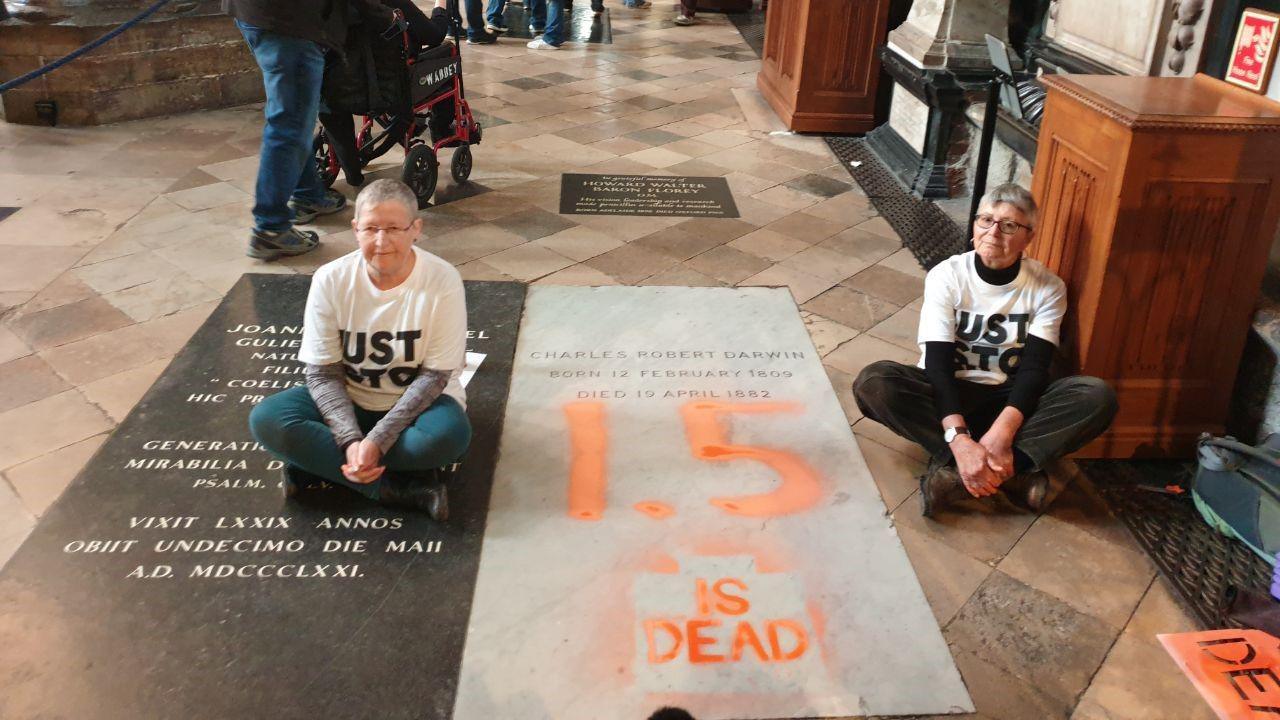Arrests after Charles Darwin grave spray-painted

The activists said the 19th-Century biologist "would be turning in that grave" over climate change
- Published
Two women have been arrested after climate protesters spray-painted over the grave of Charles Darwin inside Westminster Abbey.
Climate protest group Just Stop Oil (JSO) said two activists used chalk paint on the grave of the famous naturalist, who is best known for his theories on evolution.
The Met Police was called after the incident on Monday at 09:30 GMT and said two women were arrested on suspicion of causing criminal damage and remained in police custody.
Westminster Abbey said it was taking "immediate action" to clean the memorial.
Alyson Lee, 66, a retired teaching assistant from Derby, and Di Bligh, a 77-year-old former chief executive of Reading Council, from Rode, were involved in the action, JSO said.
A Westminster Abbey spokesperson said: "The Abbey's conservators are taking immediate action to clean the memorial and do not anticipate that there will be any permanent damage."
They added it remained open for visiting and worshipping.
Ms Lee told the PA news agency: "We are trying to get the government to act on climate change. They are not doing enough."
'Darwin would be upset'
The other activist, Ms Bligh, said: "We've done this because there's no hope for the world, really.
"We've done it on Darwin's grave specifically because he would be turning in that grave because of the sixth mass extinction taking place now."
Ms Lee added: "I believe he would approve because he was a good scientist and he would be following the science, and he would be as upset as us with the government for ignoring the science."
The EU's Copernicus Climate Change Service (C3S) confirmed on Friday that last year was the warmest on record globally and the first calendar year that the average temperature exceeded 1.5C above pre-industrial levels.
Pursuing efforts to prevent the world warming more than 1.5C above pre-industrial temperatures is one of the key commitments of the global Paris Treaty which countries agreed to in 2015, in a bid to avert the most dangerous impacts of climate change.
The scientists said human-caused climate change was the primary driver for record temperatures, while other factors such as the Pacific Ocean's "El Nino" weather phenomenon, which raises global temperatures, also had an effect.
Analysis from the Met Office, University of East Anglia and the National Centre for Atmospheric Science also found 2024 was the hottest on record, and "likely" the first year exceeding 1.5C.
Listen to the best of BBC Radio London on Sounds and follow BBC London on Facebook, external, X, external and Instagram, external. Send your story ideas to hello.bbclondon@bbc.co.uk, external